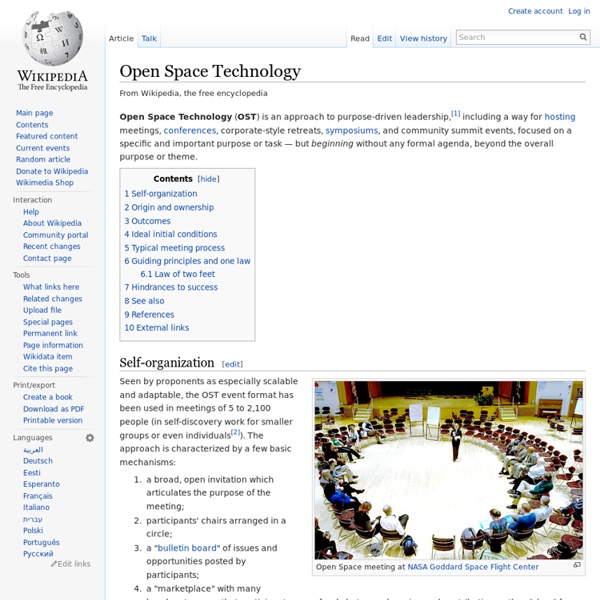Four stages of competence
In psychology, the four stages of competence, or the "conscious competence" learning model, relates to the psychological states involved in the process of progressing from incompetence to competence in a skill. History[edit] The Four Stages of Learning provides a model for learning. It suggests that individuals are initially unaware of how little they know, or unconscious of their incompetence. As they recognize their incompetence, they consciously acquire a skill, then consciously use it. Several elements, including helping someone 'know what they don't know' or recognize a blind spot, can be compared to some elements of a Johari window, although Johari deals with self-awareness, while the four stages of competence deals with learning stages. The four stages of competence[edit] Unconscious incompetenceThe individual does not understand or know how to do something and does not necessarily recognize the deficit. Fifth stage[edit] See also[edit] References[edit]
Dunning–Kruger effect
Cognitive bias about one's own skill The Dunning–Kruger effect is a cognitive bias in which people with limited competence in a particular domain overestimate their abilities. It was first described by the psychologists David Dunning and Justin Kruger in 1999. Some researchers also include the opposite effect for high performers' tendency to underestimate their skills. In popular culture, the Dunning–Kruger effect is often misunderstood as a claim about general overconfidence of people with low intelligence instead of specific overconfidence of people unskilled at a particular task. Numerous similar studies have been done. There is disagreement about the causes of the Dunning–Kruger effect. There is also disagreement about where the effect applies and about how strong it is, as well as about its practical consequences. The Dunning–Kruger effect is defined as the tendency of people with low ability in a specific area to give overly positive assessments of this ability. [edit]
Herzberg's Motivators and Hygiene Factors - Team Management Training from MindTools
Learn How to Motivate Your Team Hygiene factors are not the same as motivators! © iStockphoto/Feverpitched What do people want from their jobs? Do they want just a higher salary? This is an important question, because it's at the root of motivation, the art of engaging with members of your team in such a way that they give their very best performance. The psychologist Fredrick Herzberg asked the same question in the 1950s and 60s as a means of understanding employee satisfaction. These results form the basis of Herzberg's Motivation-Hygiene Theory (sometimes known as Herzberg's Two Factor Theory.) Motivation-Hygiene Theory Herzberg's findings revealed that certain characteristics of a job are consistently related to job satisfaction, while different factors are associated with job dissatisfaction. From 'One More Time: How do You Motivate Employees?' The conclusion he drew is that job satisfaction and job dissatisfaction are not opposites. Note: Step One: Eliminate Job Dissatisfaction Tip 1:
How Good are Your Motivation Skills? - Team Management Training from MindTools
Discover Key Factors for Building a Motivated Team Motivate your team for real success! © iStockphoto Managers everywhere want teams that are effective, focused, and committed to organizational goals. With a team like this, just think of the performance and results you could deliver! Teams only perform like this if their managers are motivating them effectively. This is why you need to be able to motivate your team if you want to create a productive work environment. The better you are able to link these factors together, the higher the motivation levels of your team are likely to be. The interactive motivational skills quiz in this article helps you identify the aspects of team motivation that you can improve. Take the test and apply the things you learn from it. How Good Are Your Motivation Skills? Take the online test below, and click the 'Calculate my total' button at the foot of the test the assess your motivation skills. Instructions: Score Interpretation (Questions 1, 4, 15) Tip: Key Points
Forming, Storming, Norming and Performing - Leadership skills from MindTools
Understanding the Stages of Team Formation Learn how to use Bruce Tuckman's simple model to help your new team become effective quickly. You can't expect a new team to perform well when it first comes together. Forming a team takes time, and members often go through recognizable stages as they change from being collections of strangers to united groups with common goals. In this article, we'll look at how you can use this model to build a highly productive team. About the Model Psychologist Bruce Tuckman first came up with the memorable phrase "forming, storming, norming, and performing" in his 1965 article, "Developmental Sequence in Small Groups." Let's look at each stage in more detail. Forming In this stage, most team members are positive and polite. As leader, you play a dominant role at this stage, because team members' roles and responsibilities aren't clear. Storming Storming often starts where there is a conflict between team members' natural working styles. Norming Performing Adjourning



